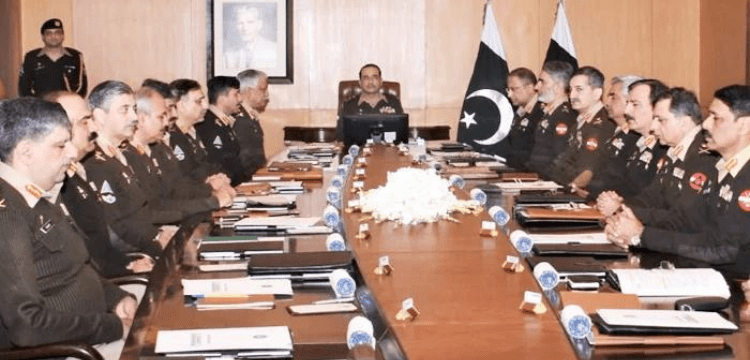[vc_row][vc_column][vc_column_text dp_text_size=”size-4″]RAWALPINDI: According to General Asim Munir, Chief of Army Staff (COAS), the Peshawar mosque suicide bombing, which claimed at least 100 people, could not change the country’s zero-tolerance stance against terrorism.
A day after the suicide bombing in Peshawar’s heavily guarded Police Lines neighbourhood, the army commander made his speech while serving as the chair of the 255th Corps Commanders’ Conference (CCC) at General Headquarters (GHQ).
Attacks against law enforcement agents have increased recently, and this one was the bloodiest to strike the unrest-ridden city close to the Afghan border in ten years. The massive explosion was blamed on Tehreek-e-Taliban Pakistan (TTP). Rather, he stated, “Such immoral and cowardly activities revitalise our will to triumph in [the] ongoing struggle against terror with zero tolerance for any terrorist group.”
The meeting was informed in detail about the current intelligence-based operations being carried out by the army law enforcement agencies (LEAs) for severing the link between terrorists and their support system across the country. The conference was presided over by the army chief.
The top military officials also lavishly honoured the victims of the Peshawar Police Lines explosion and vowed to bring those responsible to “exemplary justice.” The COAS told everyone in attendance to maintain their attention on counterterrorism operations in conjunction with intelligence and LEAs with “renewed resolve” until we achieve lasting peace.
Top political figures have also asked for agreement to undertake a national campaign to hunt out terrorists and stop it in its tracks before the nation returns to a time when many people were killed in bombings every day. “The urge to use us as a tool for superpowers is a very old one. Defence Minister Khawaja Asif stated earlier today that Pakistan is fighting terrorism alone and urged the National Assembly to support an operation like Zarb-e-Azb.
According to the Pakistan Institute for Peace Studies, attacks in Pakistan increased by 50% during the first year of the Taliban’s leadership in Kabul, primarily in the western districts bordering Afghanistan (PIPS). Islamabad has additionally charged the Taliban in Kabul with failing to protect Afghanistan’s borders and allowing insurgents there to plot operations against Pakistan.
But the defence minister emphasised that Pakistan must conduct introspection and self-accountability rather than blaming a neighbouring country. The 255th CCC included briefings on current and emerging threats as well as the situation in the illegally seized Jammu and Kashmir by India (IIOJK).
The forum reaffirmed the army’s commitment to Pakistan’s primary support for the indigenous independence movement of the courageous Kashmiri people in accordance with relevant UN resolutions, taking note of human rights violations and Indian plans to change the demographics of IIOJK.
[/vc_column_text][/vc_column][/vc_row]











